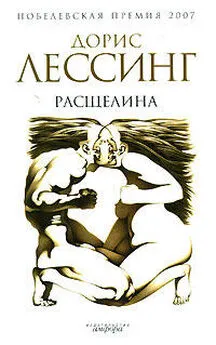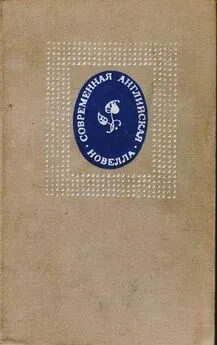Дорис Лессинг - Заметки к истории болезни [Notes for a Case History ru/en]
- Название:Заметки к истории болезни [Notes for a Case History ru/en]
- Автор:
- Жанр:
- Издательство:Молодая гвардия
- Год:1973
- Город:Москва
- ISBN:нет данных
- Рейтинг:
- Избранное:Добавить в избранное
-
Отзывы:
-
Ваша оценка:
Дорис Лессинг - Заметки к истории болезни [Notes for a Case History ru/en] краткое содержание
Введите сюда краткую аннотацию
Заметки к истории болезни [Notes for a Case History ru/en] - читать онлайн бесплатно полную версию (весь текст целиком)
Интервал:
Закладка:
Eleven years. Twelve years. Already Shirley had subsided into her role of pretty girl's plainer girl friend, although of course she was not plain at all. Fair girl, dark girl, and Maureen by mysterious birthright was the 'pretty one', and there was no doubt in either of their minds which girl the boys would try first for a date. Yet this balance was by no means as unfair as it seemed. Maureen, parrying and jesting on street corners, at bus stops, knew she was doing battle for two, because the boys she discarded Shirley got: Shirley got far more boys than she would have done without Maureen who, for her part, needed — more, bad to have — a foil. Her role demanded one.
They both left school at fifteen, Maureen to work in the shop. She was keeping her eyes open: her mother's phrase. She wore a slim white overall, pinned her fair curls up, was neat and pretty in her movements. She smiled calmly when customers said: 'My word, Mrs Watson, your Maureen's turned our, hasn't she?'
About that time there was a second moment of consciousness. Mrs Watson was finishing a new dress for Maureen, and the fitting was taking rather long. Maureen fidgeted and her mother said: Well, it's your capital, isn't it? You've got to see that, love.' And she added the deep unconscious sigh. Maureen said: Well don't go on about it, it's not very nice, is it?' And what she meant was, not that the idea was not very nice, but that she had gone beyond needing to be reminded about it; she was feeling the irritated embarrassment of a child when it is reminded to clean its teeth after this habit has become second nature. Mrs Watson saw and understood this, and sighed again; and this time it was the maternal sigh which means: Oh dear, you are growing up fast! 'Oh mum,' said Maureen, 'sometimes you just make me tired, you do really.'
Sixteen. She was managing her capital perfectly. Her assets were a slight delicate prettiness, and a dress sense that must have been a gift from God, or more probably because she had been reading the fashion magazines since practically before consciousness. Shirley had put in six months of beehive hair, pouting scarlet lips, and an air of sullen disdain; but Maureen's sense of herself was much finer. She modelled herself on film stars, but with an understanding of how far she could go — of what was allowable to Maureen. So the experience of being Bardot, Monroe, or whoever it was, refined her: she took from it an essence, which was learning to be a vehicle for other people's fantasies. So while Shirley had been a dozen stars, but really been them, in violent temporary transmogrifications, from which she emerged (often enough with a laugh) Shirley — plump, good-natured, and herself — Maureen remained herself through every role, but creating her appearance, like an alter ego, to meet the expression in people's eyes.
Round about sixteen, another incident: prophetic. Mrs Watson had a cousin who worked in the dress trade, and this man, unthought-of for many years, was met at a wedding. He commented on Maureen, a vision in white gauze. Mrs Watson worked secretly on this slender material for some weeks; then wrote to him: Could Maureen be a model? He had only remote connections with the world of expensive clothes and girls, but he dropped into the shop with frankly personal aims. Maureen in a white wrapper was still pretty, very; but her remote air told this shrewd man that she would certainly not go out with him. She was saving herself; he knew the air of self-esteem very well from other exemplars. Such girls do not go out with middle-aged cousins, except as a favour or to get something. However, he told Mrs Watson that Maureen was definitely model material, but that she would have to do something about her voice. (He meant her accent of course; and so Mrs Watson understood him.) He left addresses and advice, and Mrs Watson was in a state of quivering ambition. She said so to Maureen: 'This is your chance, girl. Take it.' What Maureen heard was: 'This is my chance.'
Maureen, nothing if not alert for her Big Chance, for which her whole life had prepared her, accepted her mother's gift of a hundred pounds (she did not thank her, no thanks were due) and actually wrote to the school where she would be taught voice training.
Then she fell into sullen withdrawal, which she understood so little that a week had gone by before she said she must be sick — or something. She was rude to her mother: very rare, this. Her father chided her for it: even rarer. But he spoke in such a way that Maureen understood for the first time that this drive, this push, this family effort to gain her a glamorous future, came from her mother, her father was not implicated. For him, she was a pretty-enough girl, spoiled by a silly woman.
Maureen slowly understood she was not sick, she was growing up. For one thing: if she changed her 'voice' so as to be good enough to mix with new people, she would no longer be part of this street, she would no longer be Our Maureen. What would she be then? Her mother knew: she would marry a duke and be whisked off to Hollywood. Maureen examined her mother's ideas for her and shrank with humiliation. She was above all no fool, but she had been very foolish. For one thing: when she used her eyes, with the scales of illusion off them, she saw that the million streets of London blossomed with girls as pretty as she. What, then, had fed the illusion in herself and in other people? What accounted for the special tone, the special looks that always greeted her? Why, nothing more than that she, Maureen, because of her mother's will behind her, had carried herself from childhood as something special, apart, destined for a great future.
Meanwhile (as she clearly saw) she was in 93 Nelson's Way, serving behind the counter of Maureen's Shop. (She now wondered what the neighbours had thought — before they got used to it — about her mother's fondness so terribly displayed.) She was dependent on nothing less than that a duke or a film producer would walk in to buy a quarter of tea and some sliced bread.
Maureen sulked. So her father said. So her mother complained. Maureen was — thinking? Yes. But more, a wrong had been done her, she knew it, and the sulking was more of a protective silence while she grew a scab over a wound.
She emerged demanding that the hundred pounds should be spent on sending her to secretarial school. Her parents complained that she could have learned how to be a secretary for nothing if she had stayed on at school another year. She said: 'Yes, but you did't have the sense to make me, did you? What did you think — I was going to sell butter like you all my life?' Unfair, on the face of it; but deeply fair, in view of what they had done to her. In their different ways they knew it. (Mr Watson knew in his heart, for instance, that he should never have allowed his wife to call the shop 'Maureen's'.) Maureen went, then, to secretarial school for a year. Shirley went with her: she had been selling cosmetics in the local branch of a big chain store. To raise the hundred pounds was difficult for Shirley's parents: the shop had done badly, had been bought by a big firm; her father was an assistant in it. For that matter, it wasn't all that easy for the Watsons: the hundred pounds was the result of small savings and pinchings over years.
This was the first time Maureen had thought of the word capital in connection with money, rather than her own natural assets: it was comparatively easy for the Watsons to raise money, because they had capital: the Banners had no capital. (Mrs Watson said the Banners had had bad luck.) Maureen strengthened her will; and as a result the two families behaved even more as if the girls would have different futures — or, to put it another way, that while the two sums of a hundred pounds were the same, the Watsons could be expected to earn more on theirs than the Banners.
This was reflected directly in the two girls' discussions about boys. Shirley would say: 'I'm more easy going than you.'
Maureen would reply: T only let them go so far.'
Their first decisions on this almighty subject had taken place years before, when they were thirteen. Even then Shirley went further (let them go further') than Maureen. It was put down, between them, to Shirley's warmer temperament — charitably; for both knew it was because of Maureen's higher value in the market.
At the secretarial school they met boys they had not met before. Previously boys had been from the street or the neighbourhood, known from birth, and for this reason not often gone out with-that would have been boring (serious, with possibilities of marriage). Or boys picked up after dances or at the pictures. But now there were new boys met day after day in the school. Shirley went out with one for weeks, thought of getting engaged, changed her mind, went out with another. Maureen went out with a dozen, chosen carefully. She knew what she was doing — and scolded Shirley for being so soft. 'You're just stupid, Shirl — I mean, you've got to get on. Why don't you do like me?'
What Maureen did was to allow herself to be courted, until she agreed at last, as a favour, to be taken out. First, lunch — a word she began to use now. She would agree to go out to lunch two or three times with one boy, while she was taken out to supper (dinner) by another. The dinner partner, having been rewarded by a closed-mouth kiss for eight, ten, twelve nights, got angry or sulky or reproachful, according to his nature. He dropped her, and the lunch partner was promoted to dinner partner.
Maureen ate free for the year of her training. It wasn't that she planned it like this; but when she heard other girls say they paid their way or liked to be independent, it seemed to Maureen wrong-headed. To pay for herself would be to let herself be undervalued: even the idea of it made her nervous and sulky.
At the end of the training Maureen got a job in a big architect's office. She was a junior typist. She stuck out for a professional office because the whole point of the training was to enable her to meet a better class of people. Of course she had already learned not to use the phrase, and when her mother did snubbed her with: 'I don't know what you mean, better class, but it's not much point my going into that hardware stuck upstairs in an office by myself if I can get a job where there's some life about.'
Shirley went into a draper's shop where there was one other typist (female) and five male assistants.
In Maureen's place there were six architects, out most of the time, or invisible in large offices visited only by the real secretaries; a lower stratum of young men in training, designers, draughtsmen, managers, etc., and a pool of typists.
The young men were mostly of her own class. For some months she ate and was entertained at their expense; and at each week's end there was a solemn ceremony, the high point of the week, certainly the most exciting moment in it, when she divided her wage. It was seven pounds (rising to ten in three years) and she allocated two pounds for clothes, four for the post office, and one pound for the week's odd expenses.
At the end of a year she understood two things. That she had saved something like two hundred pounds. That there was not a young man in the office who would take her out again. They regarded her, according to their natures, with resentment or with admiration for her cool management of them. But there was nothing doing there — so they all knew.
Maureen thought this over. If she were not taken out to meals and entertainment, she must pay for herself and save no money, or she must never go out at all. If she was going to be taken out, then she must give something in return. What she gave was on open mouth, and freedom to the waist. She calculated that because of her prettiness she could give much less than other girls.
Читать дальшеИнтервал:
Закладка:
![Обложка книги Дорис Лессинг - Заметки к истории болезни [Notes for a Case History ru/en]](/books/348664/doris-lessing-zametki-k-istorii-bolezni-notes-for.webp)








